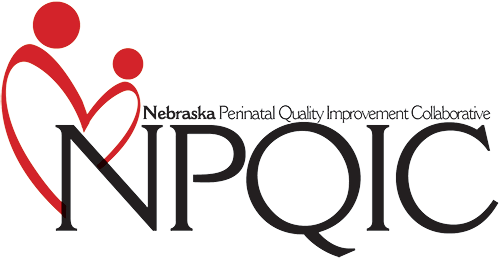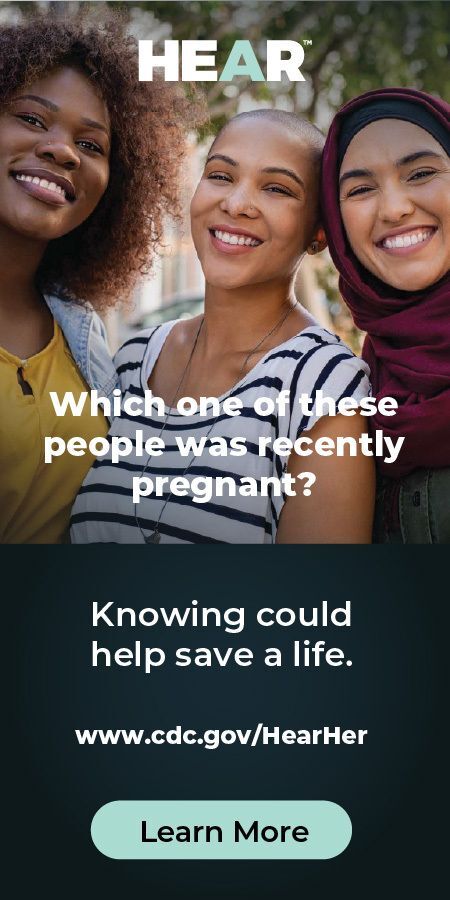The Problem
Nationwide, maternal mortality rates have climbed rapidly over the last 5 years, with Non- Hispanic Black mothers experiencing an excessively high burden of mortality. Nebraska is no exception to these alarming rates and the burden of excess deaths. More than 80% of pregnancy-related deaths are preventable. Furthermore, about 30% of Black, Hispanic, and multiracial women report being mistreated while receiving maternity care. A patient-centered approach can improve obstetric care for all women.
Initiative Aim
By December 2025, more than 75% of NE birthing hospitals will be participating in this Initiative and more than 75% of participating hospitals will have all key strategies in place between October 2023 and December 2025.
Developed with Intentionality
NPQIC began conceptualizing the Birth Equity Initiative in 2021. Community partners, clinical leaders, and patient voices have provided crucial input for key strategies and resource development. In Phase 1, the initiative was implemented in the birthing facilities in Douglas and Lancaster Counties, which serve the largest proportion of Nebraska’s birthing people who identify as Black or people of color. NPQIC then utilized feedback from participating facilities to make improvements and disseminated the initiative statewide in Fall 2024 (Phase 2).
We'd like to specifically recognize I Be Black Girl, the Nebraska Black Doula Collective, and A Mother's Love for working with us to develop this initiative with patient-first, culturally appropriate considerations. Additionally, we thank the community of Black doulas who have shared their lived experiences and wisdom with us
Respectful Care Resources
National Guidance
ACOG Committee Opinion 729: Importance of Social Determinants of Health and Cultural Awareness in the Delivery of Reproductive Health Care (January, 2018)
ACOG Committee Opinion 825: Caring for Patients Who Have Experienced Trauma (April, 2021)
Joint Statement Obstetrics and Gynecology: Collective Action Addressing Racism (August, 2020)
ACOG Committee 736: Optimizing Postpartum Care (May, 2018)
CDC Vital Signs: Many Women Report Mistreatment During Pregnancy and Delivery (September, 2023)
- Full MMWR Vital Signs Report: Maternity care experiences — United States, April 2023 (September, 2023)
Patient Education Maternal Urgent Warning Signs
AIM “Urgent Maternal Warning Signs”
Postpartum Care
MMHLA: The Fourth Trimester Fact Sheet
Respectful Care Resources
March of Dimes: Awareness to Action: Dismantling Bias in Maternal and Infant Healthcare
AWHONN: Respectful Maternity Care Implementation Toolkit (RMC-IT)
ACOG: Respectful Care e-Modules (Free)
Doula Friendly Practices
NEW NPQIC Brief: Findings from Focus Groups with Black Doulas
NEW NPQIC Brief: Findings from the Nebraska Provider Survey
CMQCC: Strategies for Doula Implementation, (2022
New York Coalition for Doula Access: Principles of a Doula-Friendly Hospital
Improving Patient-Reported Race and Ethnicity Data Collection
American Hospital Association:
HPOE: Reducing Health Care Disparities: Collection and Use of Race, Ethnicity and Language Data
NPQIC Process Flow and Sample Language for Collecting Data on Patient Race & Ethnicity (Adapted from ILPQC)
Review of Hospital Maternal Health Data by Race, Ethnicity, and Medicaid Status
AHA: Framework for Stratifying Race, Ethnicity, and Language Data
MassDPH: Racial Equity Data Road Map
Engaging Patients and Community in QI

CDC: Personal Stories of Pregnancy-Related Complications
AHRQ: Guide to Patient and Family Engagement in Hospital Quality and Safety
AHA: A Playbook for Fostering Hospital-Community Partnerships to Build a Culture of Health


